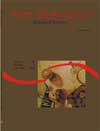Effects of different autoclaving times on nutrition quality of diets for growing rats (<em>Rattus norvegicus</em>)
Abstract
The effect of different autoclaving times in diets of growing rats (Rattus norvegicus) is provided. Similarly, test sensibility is also given with regard to protein solubility in KOH as an in vivo reduction indicator of protein quality caused by autoclaving. Three hundred 300 Wistar rats, 150 females and 150 males, were used. Aged from 21 to 35 days, they were distributed in a completely randomized design with 5 treatments (5 times of autoclaving 0, 15, 30, 45 and 60 minutes) and 10 replications of six animals per experimental unit). Live weight at 35 days old, daily weight gain and feed conversion were affected linearly with increasing of autoclaving time of diet. Protein solubility of the diets in KOH decreased from 81.37 to 24.42% when the diet was autoclaved from 0 to 60 minutes. Results indicate that analysis of protein solubility in KOH is a good indication to observe the diet’s autoclaving effectDownloads
Download data is not yet available.
Published
2008-05-09
How to Cite
Faria, H. G. de, & Stabille, S. R. (2008). Effects of different autoclaving times on nutrition quality of diets for growing rats (<em>Rattus norvegicus</em>). Acta Scientiarum. Biological Sciences, 23, 645-648. https://doi.org/10.4025/actascibiolsci.v23i0.2725
Issue
Section
Biology Sciences
DECLARATION OF ORIGINALITY AND COPYRIGHTS
I Declare that current article is original and has not been submitted for publication, in part or in whole, to any other national or international journal.
The copyrights belong exclusively to the authors. Published content is licensed under Creative Commons Attribution 4.0 (CC BY 4.0) guidelines, which allows sharing (copy and distribution of the material in any medium or format) and adaptation (remix, transform, and build upon the material) for any purpose, even commercially, under the terms of attribution.
Read this link for further information on how to use CC BY 4.0 properly.
0.6
2019CiteScore
31st percentile
Powered by 

0.6
2019CiteScore
31st percentile
Powered by 












1.png)




3.png)













